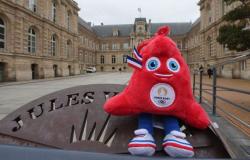
In April 2024, three months before the Paris Olympic and Paralympic Games (2024 Olympics), the New York Times and the German channel ARD revealed that twenty-three Chinese athletes who tested positive in 2021 were able to participate in the Tokyo Games after being cleared, allegedly in the greatest secrecy, by the World Anti-Doping Agency (WADA). In the wake of these revelations, the American anti-doping agency spoke of a “cover-up at the highest level of WADA”, which allegedly “swept these positive cases under the carpet”. Eleven of these athletes are now on the list that China will send to Paris. There is no doubt that these athletes, like all the others, will be particularly monitored during the Paris Games in order to avoid the errors of the London Games in 2012 with more than 70 medals withdrawn or reallocated. in the aftermath.
Olympic Games and the fight against doping: an ancient story
The first athletes to be disqualified for doping at the Games after the introduction of testing were Swedish modern pentathlete Hans-Gunnar Liljenwal at the 1968 Mexico Games (for excessive traces of alcohol) and, four years later, a German ice hockey player, Alois Schloder, who tested positive for ephedrine (1972 Sapporo Winter Games).
After having drawn up the International Olympic Charter against Doping in 1988 with the aim of harmonising the rules, the International Olympic Committee (hereinafter, IOC) supported the existence of a World Anti-Doping Agency (hereinafter, WADA), a Swiss private law foundation financed equally by the sports movement and the States, created in 1999, with its head office in Lausanne.
In 2003, WADA issued a World Anti-Doping Code establishing its own powers and the rules intended to apply to all sports and in all countries (list of prohibited products and procedures, organization of controls, sanctions and disciplinary procedures, etc.). All international federations of sports represented at the Olympic Games subscribed to this code since the 2004 Athens Games.
And…





